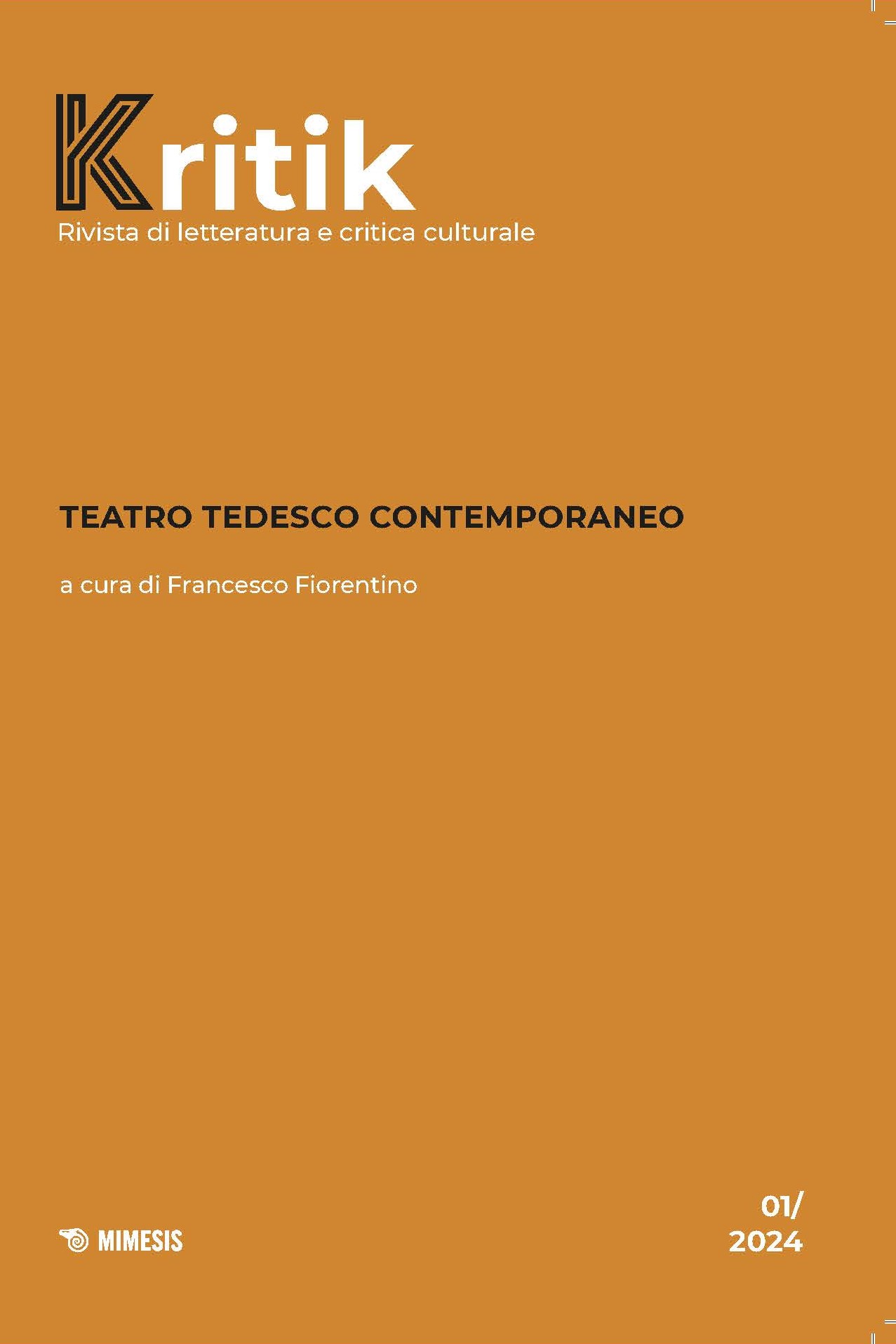Abstract
This contribution focuses on the musical theater of composer and director Heiner Goebbels, who has emerged as the protagonist of a stage practice that critiques the traditional function of the director by revolutionizing the role of actor and spectator. Underlying his theater is his Ästhetik der Abwesenheit, the aesthetics of absence that involves the disappearance of the actor/performer from the center of attention and consequently a shattering of the spectator’s attention, the avoidance of the spectator’s expectations, a desynchronization of listening and viewing, the separation of voices from performers’ bodies and sounds from instruments, the abandonment of expressiveness and the absence of a central visual focus. Added to this is the “absence” of a story.

